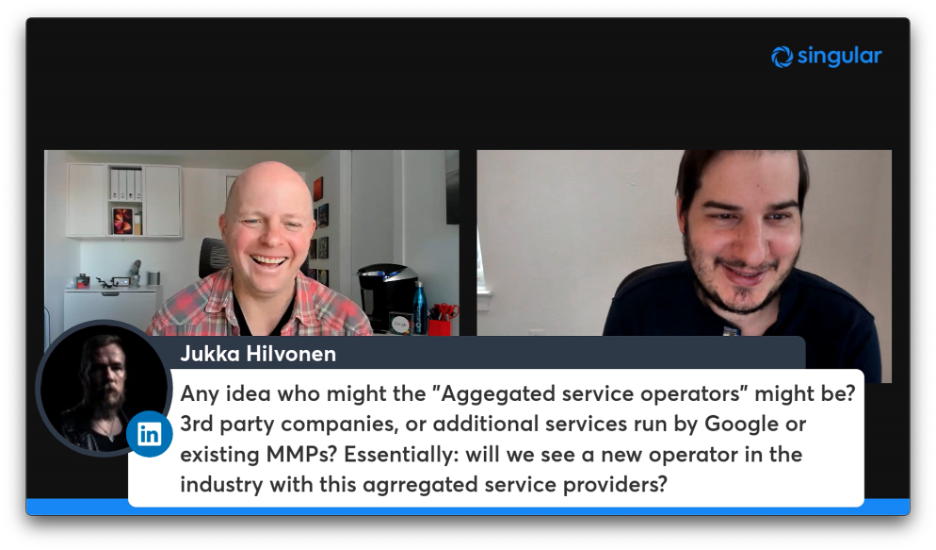Android Privacy Sandbox – livestream
By now, you’ve seen the news on Privacy Sandbox for Android. You know that adtech SDKs are going to get significantly different treatment on Android in the future in SDK runtime, and you know that while there’s some major changes, Google’s Privacy Sandbox proposal has a lot of technology for the future of mobile attribution on Android.
In short:
Yes, the GAID is going away. But no, the sky is not falling.
Now you’re ready for the livestream and a deeper dive into where Google is headed with marketing measurement on Android. Singular CEO Gadi Eliashiv and I spent an hour live on LinkedIn to dig into Topics, Fledge, Attribution Reporting, and SDK Runtime, the big four technologies in the coming Privacy Sandbox on Android.

What we cover:
- The good news about Privacy Sandbox for Android
- The biggest changes
- How targeting is impacted
- How this relates to Apple’s ATT and iOS changes
- The new events-level reporting
- Limited granularity on conversions
- But virtually unlimited granularity on upper funnel data
- Multiple postbacks … not just 1 like SKAdNetwork
- The new aggregatable reports
- Aggregation servers
- Google’s new “private cloud” way of providing privacy-safe marketing data
- Why only Google could have built this
- How retargeting will be affected
- User consent in Privacy Sandbox … and how Topics give people control of the ads they see
- Google Referrer
Near the end, we discuss the future of mobile marketing measurement. And, frankly, the future of marketing measurement in general. Marketers are going to have multiple data sources with varying levels of granularity and varying levels of the probabilistic/deterministic spectrum, and they’re going to have to merge them and add modeling to make sense of them.
Those data sources include:
- IDFA
- GAID (for at least 2 more years)
- SKAdNetwork
- Privacy Sandbox for Android
- Cost and campaign data
- In-app data
- Revenue data (IAP, purchases, ad monetization)
- Incrementality
Ultimately, unless marketers want to be data scientists, they’ll rely on companies like Singular to aggregate all these sources, normalize them, model for missing data due to privacy thresholds or noise insertions, and present a simple, actionable set of marketing results and strategy insights.
Stay up to date on the latest happenings in digital marketing


